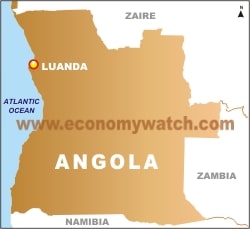Angolan President Appoints Daughter as Head of National Oil Company
President Jose Eduardo dos Santos appointed his daughter, Isabel dos Santos, as head of state oil company Sonagaol after disbanding the old board, according to Reuters. The president wishes to improve oil production as the economy struggles, and he believes his daughter has the necessary business savvy to excel in the post. Angola became OPEC’s largest oil producer in Africa as Nigeria undergoes cutbacks stemming from militant attacks.





